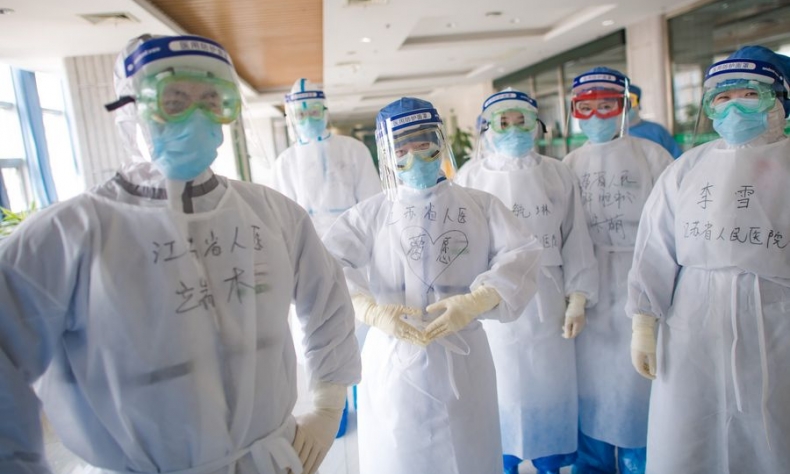WHO’s Findings Show Science, Not Politics, Key to Understanding COVID-19

Western politicians and media long promoting the line that China was responsible for inflicting the COVID-19 pandemic on the world, need to admit they were wrong following the findings of a WHO scientific investigation.
Scientists from the World Health Organization held a press conference in China on Tuesday following their investigation into the origins of the COVID-19 pandemic. They deemed there was no evidence the virus emerged by human error in the Chinese city of Wuhan, where it first came apparent to the world, and that it was not present in the city prior to December 2019.
This further discredited the conspiracy theory, pushed by former U.S. Secretary of State Mike Pompeo, former Deputy National Security Advisor Matthew Pottinger and their allies in the mainstream media, that the virus had somehow originated in a leak from a local laboratory.
The observations of the WHO were that the virus was of natural origin, crossed the species barrier from animal to human in an unknown location, and could, as Chinese scientists have repeatedly proposed, have been transmitted via frozen food.
The findings stand in sharp contrast to the enormous political blame game that has been hurled at China over COVID-19, and the refusal of some people to accept this new scientific evidence is proof as to how many have a vested interest in making a political point, as opposed to adapting their views to accept new information. The findings show we must follow science, and not political prejudices, in exploring COVID-19.

Since the epidemic first became apparent in Wuhan, Western media and political circles have sought to score ideological points against China to advance their geopolitical goals. They claimed that the situation in Wuhan was the product of a “political cover-up” as opposed to a new disease nobody really understood at the time, believing it could not happen to them.
Then, when China overcame the virus successfully and the West suffered enormous outbreaks due to their complacency, the focus turned to deflect political responsibility for the crisis to China, arguing that their failures were the fault of Beijing’s cover-ups, and that the WHO was “complicit” in it.
The Trump administration created their “China virus” blame game, the United Kingdom government also tended towards blaming China, and various Western news outlets repeatedly over the course of 2020 pushed this grand narrative that the global pandemic was China’s fault.
This made it inconceivable for many people, having focused their frustrations and emotions in blaming Beijing, to accept new scientific information contravening their deeply held prejudices. As Chinese scientists revealed more about COVID-19 and its origins, it was dismissed as mere propaganda. People simply didn’t want to believe it, and the media kept making it worse by falsely claiming that Beijing was “blaming other countries” for the COVID-19 when it wasn’t.
This phenomenon, whereby people reject factual information outright on the premise of emotional reactions and prejudices, is known as “cognitive dissonance.” It is amplified by the fact that the West persistently portrays itself as the only neutral and valid source of “political” truth.
The Western public largely refuses to come to terms with the fact that their own governments and media were, in fact, lying to them over the COVID-19, rather than China doing so, and promoted multiple conspiracy theories in order to create legitimacy for a geopolitical confrontation against China itself.
In recognizing what has actually happened, the world now needs to be rational. Rather than following their political prejudices, they should follow science and, in turn, be willing to comprehend proper facts about the COVID-19 as opposed to tabloid gossip.
Sometimes science reveals things challenging our most deeply held convictions about the world and life. For example, nobody wanted to believe Galileo that the world, in fact, orbited the sun and many people continue to deny the science of climate change. The inability to come to terms with the truth of the COVID-19 is the same phenomenon.
Even though investigations show that it did not originate within Wuhan and that there was no “political cover-up” prior to its announcement, people simply want to believe otherwise because they are committed to advancing prejudice about China, as opposed to the reality.
There was in the end one side which has massively peddled deception about this disease on an industrial scale, and it wasn’t China. It’s time to follow the science and it’s time for people to admit they were wrong.
The author is a British political and international relations analyst and a graduate of Durham and Oxford universities. He writes on topics about China, the DPRK, Britain and the U.S.
 Facebook
Facebook
 Twitter
Twitter
 Linkedin
Linkedin
 Google +
Google +







